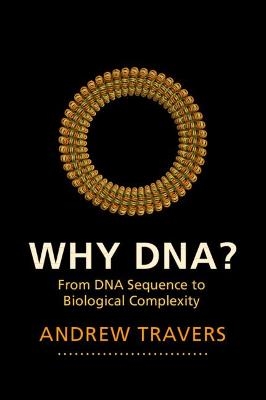
Why DNA?
Cambridge University Press (Verlag)
978-1-107-69752-2 (ISBN)
Information is central to the evolution of biological complexity, a physical system relying on a continuous supply of energy. Biology provides superb examples of the consequent Darwinian selection of mechanisms for efficient energy utilisation. Genetic information, underpinned by the Watson-Crick base-pairing rules is largely encoded by DNA, a molecule uniquely adapted to its roles in information storage and utilisation.This volume addresses two fundamental questions. Firstly, what properties of the molecule have enabled it to become the predominant genetic material in the biological world today and secondly, to what extent have the informational properties of the molecule contributed to the expansion of biological diversity and the stability of ecosystems. The author argues that bringing these two seemingly unrelated topics together enables Schrödinger's What is Life?, published before the structure of DNA was known, to be revisited and his ideas examined in the context of our current biological understanding.
Andrew Travers is an Emeritus Scientist at the Medical Research Council Laboratory of Molecular Biology (MRC LMB) and a Visiting Scientist in the Department of Biochemistry at the University of Cambridge. His research focuses on the use of the genetics and biochemistry of bacteria and Drosophila to study the mechanisms of chromatin folding and unfolding. He started his academic career at the MRC LMB before spending two years as a post-doc in Jim Watson's lab at Harvard University, where he co-discovered the first of the RNA polymerase sigma factors.
Acknowledgements; Preface; 1. The perennial question; 2. The nature of information – information, complexity and entropy; 3. DNA – the molecule; 4. The evolution of biological complexity; 5. Cooperating genomes; 6. DNA, information and complexity; 7. Origins; 8. The complexity of societies; 9. Why DNA – and not RNA?; General reading and bibliography.
| Erscheinungsdatum | 01.10.2021 |
|---|---|
| Verlagsort | Cambridge |
| Sprache | englisch |
| Maße | 152 x 228 mm |
| Gewicht | 400 g |
| Themenwelt | Informatik ► Weitere Themen ► Bioinformatik |
| Naturwissenschaften ► Biologie ► Biochemie | |
| Naturwissenschaften ► Biologie ► Genetik / Molekularbiologie | |
| Naturwissenschaften ► Physik / Astronomie ► Angewandte Physik | |
| ISBN-10 | 1-107-69752-2 / 1107697522 |
| ISBN-13 | 978-1-107-69752-2 / 9781107697522 |
| Zustand | Neuware |
| Informationen gemäß Produktsicherheitsverordnung (GPSR) | |
| Haben Sie eine Frage zum Produkt? |
aus dem Bereich


